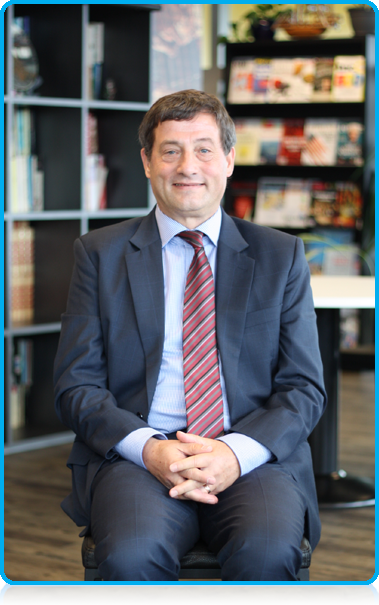Dr Teun Wolters - "Research as a way of learning at HBO"
 Wittenborg is making strides in setting up its research centre. I expect to substantiate this in the near future by informing you about a couple of interesting research projects that Wittenborg has embraced.
Wittenborg is making strides in setting up its research centre. I expect to substantiate this in the near future by informing you about a couple of interesting research projects that Wittenborg has embraced.
However, this does not imply any kind of complacency. Recently, I attended a meeting where research professors working for Dutch universities of applied sciences explained how they had organised their research programmes. One of them was an organisational sociologist who enthusiastically talked about research as a way of learning.
On the one hand there was ‘learning by instruction’. Indeed, we readily recognise this. In our imagination we see teachers telling students what is worth knowing.
On the other hand, there was research that involves students in a process full of cognitive surprises and discoveries. The speaker had established a group of companies which could air their organizational problems for which they had no satisfactory solution. After that, students could put on their research hat in order to come up with imaginative solutions. You may wonder whether the students involved had enjoyed sufficient ‘instruction’ to deal with the kind of problems to which experienced professionals had no answer.
The speaker was able to take away this worry right away. The students could leave behind all the business knowledge they had ever learnt. They had to conduct interviews with people in the company covering a diversity of functions and responsibilities from shop floor up to the CEO him/her self. The questions asked had to be frank and unbiased, that is, not prejudiced by any book learning.
The results were amazingly interesting for all parties. New solutions emerged that remained hidden before. In the final analysis only, could the students put the book knowledge and the field knowledge together, leading to a remarkable synthesis. I was impressed by the presentation. Is this the way forward?
Dr Teun Wolters, December 2011
The Wittenborg Research Centre is still at the beginning of its development. It strives to attract various types of research. Sustainability is one of its leading themes. Sustainability can be a major aspect in research without always being the main focus.
Our research aims for the following:
- Making contributions to the further development of the local community of Apeldoorn (economic and social reinforcement); building up relations with government, companies and other institutions.
- Execution of applied research which is relevant to society according to various qualitative and quantitative methods (such as testing of hypotheses, explorative studies, benchmarking, action research and case studies). As much as possible the centre’s research projects should be commissioned (and financed) by third parties who take a special interest in the outcomes. We wish to conduct our research in accordance with appropriate project management systems (such as Prince II).
- Involving students and lecturers in the research (graduation projects and teaching enrichment projects).
- Developing national and international collaboration in the areas of research, education and training.
- Producing high-quality publications (by means of a research report series, books and academic articles)
- Contributing to curricula and educational development
- Offering senior opportunities for building up work experience based on action learning and action research.
Wittenborg Research Centre aims at the development of so-called knowledge circles (consisting of various parties interested in research in a particular area) and research programmes (enabling the execution of various projects). The diagram below shows how the centre is going to be structured.
Research programmes do not necessarily belong to one of the knowledge circles but it is useful to establish interconnections.
The first research programme is called “Learning for Sustainable Development”, which will be led by Dr Niko Roorda. This programme gives action research a central place, applying the AISHE instrument (which was developed by Dr Roorda). To accomplish this, the programme will involve companies interested in implementing the AISHE framework as an instrument to integrate sustainability. Students will be given an opportunity to do research and write their final thesis. Various aims as mentioned above can be realized within this programme.